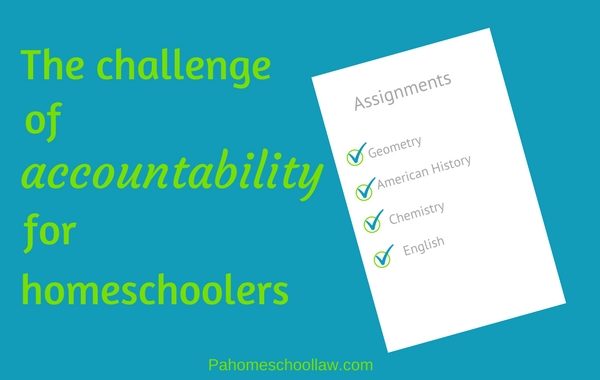One challenge that took me by surprise in the years that I homeschooled was my older son’s need for outside accountability to stay motivated. It took a while for me to recognize because it’s not something a child would understand, know that he needed or be able to articulate.
From my point of view, I knew our home education program was meeting the legal requirements every year. Even though we weren’t following any prescribed standards, I was confident that the children were learning and engaged and relatively on par with their peers. Our days had a predictable routine without a strict regiment, which seemed to work pretty well.
Luke was the only one of the kids who compared himself to his school-going friends. If one of his teammates mentioned what he was reading or learning about in “real” school, Luke thought he should be doing the same. I couldn’t convince him that the things he was learning were as valuable as what his friends were learning, just different topics or in a different order.
Even after evaluations at the end of the school year and his portfolio was returned from the local school district with a note verifying that “an appropriate education has occurred”, Luke wasn’t convinced that he was progressing on pace with his friends.[Changes in PA homeschool law no longer require portfolio review by school administrators].
When Luke learned the mechanics of writing (forming the letters to his satisfaction and writing words and sentences without struggling) he begged for writing assignments with hard deadlines. When he completed math pages and tests, he insisted that I mark them with a letter grade.
When I implemented an abbreviated version of the “workbox system” he loved it. Which was another sign that he craved completion and progression.
Public school (both cyber and local) has provided the accountability Luke craves and that I wasn’t able to impose. I could assign deadlines or page numbers but we both knew that they were arbitrary. Luke was never disobedient or rebellious but even though he asked for deadlines and goals (write two paragraphs, read X amount of pages), he wasn’t motivated to comply when I assigned them.
Conventional school isn’t the only way to achieve outside accountability if your child needs it. Co-op classes (formal or informal with a small group of friends), a tutor, online courses or even a family member taking the time to teach a subject to all of your children can impose reasonable deadlines that don’t seem so pointless. For a variety of reasons, none of those options worked for our family. These alternatives are easier to explore when you only have one child.
I’m not sure any of those arrangements would have satisfied Luke anyway. He wasn’t convinced until he could compare himself to traditionally-schooled students that he learned anything during our homeschooling years.
He realizes in hindsight that our fairly relaxed style was more effective than the workbook/textbook method of learning employed in most conventional schools. He has been on the honor roll or high honor roll for each semester he’s been enrolled in public school. He qualified for a merit scholarship at the college where he plans to play tennis and generally feels confident in his academic abilitites even though he’s probably completed fewer worksheets than most kids his age.
Each of my children had a desire to try something other than traditional homeschool around junior high. Although I’m not a fan of the busy work and dry, textbook-based courses, cyber school allowed Luke to manage assignments and compare his abilities to his peers (which was important to him-not me) relatively anonymously and without the risk of ridicule.
Teachers at Luke’s online school publish assignments a week or two ahead of time and there are hard deadlines every three weeks during a 9-week grading period (progress checks). This is a perfect format for Luke because it allows him to check things off, work a little ahead and he doesn’t procrastinate. I’m sure that task-completion is innately satisfying to him (in a brain chemical way), unlike my daughters who can have a dozen projects going at once without an end in sight.
I have some criticisms of the conventional school model but it has provided accountability for a boy who requires it to move forward.
If you’re considering cyber school for one of your children, I encourage you to research various formats and requirements for assignments and tests. Not all provide as much flexibility as the one I chose for Luke (PA Leadership Charter School). You should be able to compare methods and platforms to find the best fit for your child.

